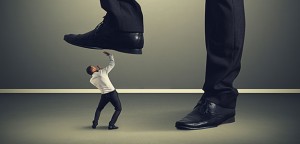by | ARTICLES, BUSINESS, ECONOMY, FREEDOM, GOVERNMENT, OBAMA, POLITICS, TAXES

Discussion began heating up again about the “internet tax” last week when lawmakers pushed back the moratorium on Internet access taxes — set to expire on Nov. 1 — until mid-December during the lame-duck session. In the meantime, let’s call it out for what it really is: a revenue grabber masquerading as “fairness”.
Last year the Senate passed the online sales tax bill, formally known as the “Marketplace Fairness Act”. There is nothing fair about this act. It is a back-door way for states to add additional levies on their citizens under the guise of leveling the playing field . From an accountant’s perspective, here’s how:
Most proponents of the bill suggest that there is somehow a dearth of tax revenue from which states are suffering terribly. This sentiment was echoed at the time in the pages of the WSJ by Arthur Laffer. He wrote that “the exemption of Internet and out-of-state retailers from collecting state sales taxes reduced state revenues by $23.3 billion in 2012 alone, according to an estimate by the National Conference of State Legislatures. The absence of these revenues has not served to put a lid on state-government spending. Instead, it has led to higher marginal rates in the 43 states that levy income taxes”.
But this is simply and patently untrue. State legislatures have always set their tax rates with the full understanding that they would not actually collect that supposed $23.3 billion of internet “slippage”. It’s not like there is a line item in state budgets that lists “uncollected online tax” or “tax cheats” with a number attached. Sales tax is one of many levies whose revenues positively fund government spending. This online tax, if passed by the House next and signed into law, will just be yet another tax (and therefore revenue) for the coffers. Higher marginal rates exists because state-government spending levels are higher, not because of some “absence of tax” nonsense that forces states to raise rates.
In our states’ budgets, current taxes rates (income + sales, if applicable) are set at levels appropriate to cover the calculations of state spending. 49 out of 50 states require a balanced budget. These states are fully aware that taxes are “avoided” (internet and out-of-state) and therefore don’t even count them in their budget calculations. So there is no concrete “absence of revenue”. Instead, by passing this new internet tax, you are merely giving the states a free reign to add a tax without taking the political heat for it, under the guise of “fairness”.
Looked at it another way, it is unconscionable for Congress to pass this legislation without requiring that states lower their marginal rates so that the new tax makes everything revenue neutral. Higher marginal rates as they are already burden taxpayers. This internet tax doesn’t fix anything — because there is nothing in their budgets to be “fixed”. True tax reform (a true “fix”) always means broadening the base and thereby reducing the overall burden of taxes. Instead of that, what we have with this bill is a revenue grab.
Another fallacy for supporters is that including the internet tax in transactions is simply a matter of adding a quick, little tax line where there was none before. But it is highly irrational for legislators to believe that compliance with multiple tax jurisdictions for vendors will be an easy and unburdensome process. The recordkeeping will be excruciating.
This tax nightmare is similar to the 1099 fiasco originally included in Obamacare a couple of years ago, which expanded the reporting requirements to include all payments from businesses aggregating $600 or more in a calendar year to a single payee. Because of the insurmountable amount of reporting and paperwork that would have been associated with it, that provision was highly protested and swiftly and subsequently repealed.
The effect of distressing our businesses to comply with this online tax collection will be a drag on the economy. Can you imagine vendors needing to figure such things as whether marshmallows are a taxable food/candy in some jurisdictions while it might be a non-taxable food in others? To think that software can seamlessly make this distinction is ludicrous, especially software run by the government. When has the government ever actually streamlined anything? And implementing such a convoluted tax while businesses are already having to deal with sorting out the egregious complexities of Obamacare compliance will certainly hurt businesses even more.
Internet tax collection for 9,600 local tax jurisdictions or even just 50 states is too much. If such a tax is to be passed, it should be either a tax in which every state accepts one set of rules OR a tax payable to the state-of-sale only — which would ultimately be better for tax competition overall.
The economy is suffering enough. Adding yet another tax for citizens, which also requires burdensome compliance for businesses, is not the way to do it.
Laffer was correct regarding taxes when he observed that “the principle of levying the lowest possible tax rate on the broadest possible tax base is the way to improve the incentives to work, save and produce which are necessary to reinvigorate the American economy and cope with the nation’s fiscal problems”. But the “internet tax” doesn’t do that. In its current form, it is just another revenue stream for our bloated, overspending government.
This is no “Marketplace Fairness Act”. It is an atrocity.
by | ARTICLES, BUSINESS, ECONOMY, FREEDOM, GOVERNMENT, OBAMA, POLITICS, TAXES

The Department of the Treasury announced last night that it has implemented new rules aimed at making it more difficult for U.S. companies to move their headquarters abroad, which is known as an “inversion”. The rules take immediate effect.
Interestingly enough, when Obama began his crusade against inversions earlier this summer, Secretary of the Treasury Jack Lew was adamant enough that rules changes must originate in Congress, he wrote a letter to Congress and he penned an Op-Ed about it in for the Washington Post, both in July. From the Op-Ed:
I call on Congress to close this loophole and pass anti-inversion legislation as soon as possible. Our tax system should not reward U.S. companies for giving up their U.S. citizenship, and unless we tackle this problem, these transactions will continue. Closing the inversion loophole is no substitute for comprehensive business tax reform, but it is a necessary step down the path toward a fair and more efficient tax system, and a step that needs to be in a place for tax reform to work.
Now suddenly it seems Jack Lew has inverted own his position and announced new rules originating from the Treasury Department, not Congress — and did so as soon as Congress left town for a break. Obama referred to that loophole in his statement to the press:
“We’ve recently seen a few large corporations announce plans to exploit this loophole, undercutting businesses that act responsibly and leaving the middle class to pay the bill. I’m glad that Secretary Lew is exploring additional actions to help reverse this trend.”
Except there is no loophole. Business inversions are merely a movement from the U.S. to a foreign HQ. The reasons for doing so is not to avoid paying taxes as the Obama administration would have you believe. And there is no “lost tax bill” either that the middle class is “left to pay”. U.S. companies face a kind of double taxation — taxing both domestic and foreign earned corporate income — and we are the only major industrial nation to this to our businesses.
At a time when many industries are truly global, in the present environment U.S. companies are at a severe financial disadvantage compared to foreign companies. This foreign-earned income is what the United States government currently lays claim to — and is the only country in the world to do so. So under this tax law, U.S. companies therefore pay higher tax rates than other foreign companies do on the income they make in foreign countries, putting U.S. companies at a competitive disadvantage.
Jack Lew was right, in a tragic sense, when he stated that “this action will significantly diminish the ability of inverted companies to escape U.S. taxation”. That “U.S. taxation” from which some companies are trying to “escape” is that wretched double taxation on both its domestic and foreign earned income. All an inversion does is allow a U.S. company to change its HQ from the U.S. to a foreign country, for the sole purpose to have the ability to be on par with foreign companies and eliminate the severe tax disadvantage that the U.S. puts on its own businesses in a global setting. Enacting these rules will indeed “significantly diminish” some companies from inverting — and likely diminish their ability to stay competitive around the world in doing so.
Besides the double taxation rules, the United States has the highest corporate tax rate in the world at 35%. At a time when other countries have lowered their corporate tax rates, the U.S. has stayed stubbornly high, thereby earning them the 32 spot out of 34 countries in the new “International Tax Competitiveness Index”. This index measured two criteria, competitiveness and neutrality, by examining the extent to which a country’s tax system adheres to these two important principles of tax policy. Responding to that ranking, the Wall Street Journal wryly noted that if punitive legislation on inversions were to be enacted, ”the U.S. could fall to dead last on next year’s ranking. Now there’s a second-term legacy project for the President.” And now we have such measures suddenly implemented.
Sadly, the crusade against inversions is really less about money than it is about scoring rhetoric points by throwing around words like “loopholes” and “unpatriotic” when discussing businesses. Bloomberg noted that “the congressional Joint Committee on Taxation has estimated that legislation to curb inversions would raise about $20 billion over the next decade”. That is $2 billion a year, a drop in the bucket for tax income.
Making it harder to invert now — which is what some corporations might need to do in order to stay in business — is repugnant. The business climate in this country is difficult and to insinuate that a company is a “deserter” casts the blame squarely in the wrong place — which is a government that over-taxes and over-regulates. Those are the real problems, and the recent uptick in inversions are merely a symptom of the strident anti-business environment that pervades this administration.
by | ARTICLES, BLOG, BUSINESS, FREEDOM, GOVERNMENT, OBAMA, TAXES
 The Tax Foundation released its first global stat called the “International Tax Competitiveness Index”. This index aims to measure two criteria, competitiveness and neutrality, by examining “the extent to which a country’s tax system adheres to”, these “two important principles of tax policy”.
The Tax Foundation released its first global stat called the “International Tax Competitiveness Index”. This index aims to measure two criteria, competitiveness and neutrality, by examining “the extent to which a country’s tax system adheres to”, these “two important principles of tax policy”.
The index accounted for more than 40 tax positions and policies. In their analysis, two of the most damning reasons for ranking the United States near the very bottom of the list include the highest corporate tax rate (39%), as well as the “rare demand that money earned overseas should be taxed as if it were earned domestically”. As such, the United States outranked out only Portugal and France and was placed 32 out 34 industrialized nations.
The concept of “competitiveness” is described as one that “limits the taxation of businesses and investment”. The Tax Foundation acknowledges that heavy taxation runs the risk of the flight of capital and business location. This is turn drives “investment elsewhere, leading to slower economic growth.” We are seeing this is the growing popularity of business inversions, which is driving President Obama and Sen. Chuck Schumer to create punitive legislation on business that wish to leave. Ironically, if they are successful, the WSJ notes, ” the U.S. could fall to dead last on next year’s ranking. Now there’s a second-term legacy project for the President.”
Not only are corporate taxes the highest on this list of 34 countries, it is pretty much the highest in the entire world:
The accounting firm KPMG maintains a corporate tax table that includes more than 130 countries and only one has a higher overall corporate tax rate than the U.S. The United Arab Emirates’ 55% rate is an exception, however, because it usually applies only to foreign oil companies.
The other major concept besides competitiveness that shaped the overall index rankings is the concept of “neutrality”. Neutrality is characterized as “a tax code that seeks to raise the most revenue with the fewest economic distortions. This means that it doesn’t favor consumption over saving, as happens with capital gains and dividends taxes, estate taxes, and high progressive income taxes. This also means no targeted tax breaks for businesses for specific business activities.” These various forms of taxation, as well as the massive crony capitalism enterprises widely seen in the United States, are found to “misallocate capital and reduce economic growth”. This factored heavily into the low ranking that the United States received.
The United States is falling behind around the world:
“Liberals argue that U.S. tax rates don’t need to come down because they are already well below the level when Ronald Reagan came into office. But unlike the U.S., the world hasn’t stood still. Reagan’s tax-cutting example ignited a worldwide revolution that has seen waves of corporate tax-rate reductions. The U.S. last reduced the top marginal corporate income tax rate in 1986. But the Tax Foundation reports that other countries have reduced “the OECD average corporate tax rate from 47.5 percent in the early 1980s to around 25 percent today.”
This new index ranking should be a wake-up call and a springboard for discussion about much-needed tax reform. Our tax code is byzantine, our businesses are over-taxed, and our economy is continuing to suffer. Our reputation should not be, “At least we beat France!” We can do better. We have done better. We deserve better.
by | ARTICLES, BUSINESS, ECONOMY, GOVERNMENT, OBAMA, POLITICS, TAXES

The government is still running more than a half-trillion dollar deficit right now, with one month left to go in the fiscal year, despite record revenue being hauled in.
CNSNews reports that “Inflation-adjusted federal tax revenues hit a record $2,663,426,000,000 for the first 11 months of the fiscal year this August, but the federal government still ran a $589,185,000,000 deficit during that time, according to the latest Monthly Treasury Statement.”
Thus, the government is still over-spending, to the tune of $3,252,611,000,000 in total expenses so far this year.
Here’s the breakdown of revenue:
Individual income taxes: $1,233,274,000,000
Corporate income taxes: $247,200,000,000
Employment and general retirement (off-budget): $674,338,000,000
Employment and general retirement (on-budget): $209,281,000,000
Unemployment insurance: $54,591,000,000
Other retirement receipts: $3,155,000,000
Excise taxes: $73,051,000,000
Estate and gift taxes: $17,702,000,000
Customs duties: $30,902,000,000
Miscellaneous receipts: $119,933,000,000
So just remember, the problem isn’t enough tax revenue or underfunded programs — it’s that the government can’t seems to stay on budget or within its revenue receipts. All this overspending does is just continue to add to the growing deficit.
by | ARTICLES, BUSINESS, ECONOMY, GOVERNMENT, OBAMA, OBAMACARE, POLITICS, TAXES

According to the Treasury Inspector General for Tax Admininstration (TIGTA), the 2.3% medical device excise tax enacted to help pay for Obamacare is not meeting targets.
The tax went into affect January 1, 2013. The TIGTA report analyzed the returns for the first two quarters (6 months) of 2013, and found that the “excise tax revenue being reported are lower than estimated” for a total of $913.4 million. The IRS expected to have received “excise tax revenue of $1.2 billion for this same period.”
The report also states that the “Joint Committee on Taxation estimated revenues from the medical device excise tax of $20 billion for Fiscal Years 2013 through 2019.”. And yet, in the first six months alone, the estimate amounts are off by 25%. That does not bode well.
Many of the problems originate in the IRS. In fact, the report is aptly named “An Improved Strategy Is Needed to Ensure Accurate Reporting and Payment of the Medical Device Excise Tax”. Some of the key findings:
“The IRS is attempting to develop a compliance strategy to ensure that businesses are compliant with medical device excise tax filing and payment requirements and has taken several measures to advise medical device manufacturers of the new excise tax. However, the IRS cannot identify the population of medical device manufacturers registered with the Food and Drug Administration that are required to file a Form 720 and pay the excise tax.”
“In addition, processing controls do not ensure the accuracy of medical device excise tax figures reported on paper-filed Forms 720. Our analysis of 5,107 Forms 720 processed for the quarters ending March 31 and June 30, 2013, identified discrepancies in the amount of the medical device excise tax and/or taxable sales amount captured from 276 paper‑filed tax returns. TIGTA identified medical device excise tax discrepancies totaling almost $117.8 million when comparing the excise tax amount captured by the IRS from the Form 720 to the excise tax amount TIGTA calculated.”
And the most interesting:
“Finally, the IRS erroneously assessed 219 failure to deposit penalties totaling $706,753 against businesses filing a Form 720 for the quarters ending March 31 and June 30, 2013, which was designated a penalty relief period. The IRS had reversed 133 of the 219 penalty assessments. When TIGTA alerted the IRS of the remaining 86 penalties, IRS management reversed the penalties and issued apology letters to the affected taxpayers.”
The IRS, it seems, was unprepared to handle the collection of excise tax, and furthermore, did not seems to understand basic reporting and penalty relief periods of which it was put in charge.
Think about this: we are now in August of 2014. That means that the second half of 2013 and the first half of 2014 went by before the TIGTA report was released with its findings. If the first 6 months of revenue were found to be about 25% under estimate, it is likely the trend continued for the next full year.
The IRS did agree to the findings of the TIGTA report. However, the summary does not leave one feeling confident that there will be swift resolution now that the problems have been discovered and dissected. Note the ambiguity and qualifiers:
The IRS agreed with our recommendations and plans to consider alternative strategies for identifying noncompliant manufacturers, identify programming changes needed to improve the math verification for paper-filed Forms 720, and implement procedures for corresponding with taxpayers if the changes can be accomplished within budgetary constraints.
Never mind the fact that the Affordable Care Act passed in March 2010 with the excise tax being a key, but controversial, revenue-raiser. The IRS had nearly three years to come up with a) a system to identify companies who owed the tax and b) a system to process the associated forms. And it couldn’t do it.
With the tax being so controversial from the get-go, there have been measures in Congress calling for its repeal because of its impact on the cost of devices and well as jobs in the medical device field.
“The medical device industry has been lobbying hard to get the tax repealed, and there has been movement in Congress. Both the House and the Senate have passed separate pieces of legislation calling for the tax to be repealed, though the Senate vote was on a nonbinding resolution.”
The problem at this point with excise tax repeal is the question of how to make up for even more lost revenue to pay for Obamacare. Taxpayers should be indeed be nervous that the tax collection is showing to be only 75% and we actually have no idea if it improved or worsened at all over the following year because data is not available for it.
The only thing we do know is that we are certain to see a premium rate increases this coming year because the projections have been so off-estimate.
by | ARTICLES, BUSINESS, GOVERNMENT, OBAMA, POLITICS, RETIREMENT, TAXES

A study was released today that showed more than a third of Americans, (36%)a have saved nothing for retirement. That got me thinking about the idea of retirement and the state of retiring in this country.
Everyone thinks they can retire at age 65. It’s an American ideal born in the last century with the rise of unions, the defined benefit plan, and generous pension systems. In reality, especially due to advances in health, medicine, and nutrition, many people have great capability to continue to work and contribute to society and themselves until 80. And they should — because they need to.
There is a crisis of affordability looming. Besides the enormously wealthy, for the most part no average person can afford to retire at 65. It is simply not possible, living a normal lifestyle, for anyone to put enough toward retirement that will enable him to live another 20-30 years. A life span of 85-95 is swiftly becoming the new norm. The only workers today who are the exception to this reality, and have any hope of a lengthy retirement with comfort, are public service employees.
Taxpayers have been long bamboozled into making generous commitments to the retirement systems of public service workers. All over the country, in all levels of federal and state governments, these defined benefit plan pension funds have proven to be vastly untenable. Yet to sustain the plans in their current arrangements and cover the obligations that have already been promised, the rest of society will be duty-bound/compelled to contribute to the retirement of those public service workers via higher taxes. This is turn makes the rest of the populace poorer — because their hard-earned money is being levied to the promised public pensioner, and not for able to be saved for themselves.
The grand scheme is becoming unhinged. One must realize that the more people continue to buy into the idea that they are supposed to “retire at 65”, the more they are suckered into continuing make their retirement years poorer and subsequently make the retirement years of public service employees richer. People see a public service worker being able to retire at that age and they think “I should be able to also do so”. This idea needs to change.
There are two reasons why most people think that such pension programs are still sustainable and normal: their troubles are largely masked because they encompass the larger budget process of federal/state/local governments (and how many people pay attention?) and the costs to keep the programs afloat are borne by all the rest of society — the taxpayers. This arrangement enables a small group of people to be paid a sizeable and continuous pension for until death. It is not out of the ordinary anymore for a person to receive $65K- $100K for the rest of their life. But the actuarial cost to provide that promised benefit is astronomical.
With the lifespan of Americans growing longer, retiring at 65 is no longer viable; the systems are badly strained. And it is certainly not rational for the longevity of Social Security and Medicare either. Yet the steadfast refusal of most of government to overhaul retirement systems or make age and formula adjustments to entitlement programs — in order to maintain this retirement facade — only compounds the problem. (See the latest regarding the annual Social Security report here)
Another one of the biggest detriments of being able to retire at 65 is investment return. Interest rates have been historically low for the last five years and there is a strong likelihood of them staying low for another few. As a result, peoples’ retirement portfolios have lagged in their anticipated growth and goals. The low rates mean less money overall for retirement time, a problem which can be offset by continuing to work and contribute to a retirement fund past the basic age.
Likewise, inflation is not just the issue that everyone thinks it is. The cost of “modern living”, the “keeping up with the Jones”, is a form of lifestyle inflation that adds to the problem. For example, newer models of everything due to technology constantly changing — upgrading TVs, cell phones, etc. are raising the bar for how much pensioners want to comfortably live on and live with.
In sum, with living longer, low rates of return, and the “cost of Jones’s increase”, people must begin to realize that the timespan between 65 – 80 can be, and should be, a healthy and productive time of life. Working, staying active, and continuing to save will be beneficial in the long run. The mindset of older citizens needs to change and they need to understand that they can should aim to be productive until they are 80. At 65 they can certainly slow down, but the concept of retiring and not working anymore at that age is unrealistic and unaffordable.
by | ARTICLES, BUSINESS, ECONOMY, GOVERNMENT, OBAMA, POLITICS, TAXES

Earlier this week, the business world was chattering about the news that Kinder Morgan, pioneer of the Master Limited Partnership (MLP) business model, was surrendering the MLP structure in favor of a more traditional corporation. This happened last Sunday.
While many questioned what this meant for the MLP model in general, the more pressing questions began to emerge when, the following day, the Treasury Department came out with a statement regarding MLPs: “We at the Treasury are looking into the effects of these transactions on future tax revenues. Instances where the tax base may be eroded serve as a reminder of why we need Congress to enact business tax reform that broadens the tax base and lowers tax rates.”
Much like that false crusade on inversions, here we have another instance of anti-business sentiment coming out of the Executive Branch. Obama’s abuse of the law is clearly now seeping down to his cabinet underlings who also think now they have the authority to rewrite the law as well — especially under the cloak of getting more tax revenue.
Starting this past April, the government issued a temporary pause in the formation of new MLPs. The way the process works is that the IRS would issue what’s known as “private letter rulings” that examine qualifying income, and then therefore allow an MLP to be formed. However, the Treasury Department decided to examine the standards being used, meaning that the creation of new MLPs have been on hold for a few months.
The internal committee has been tasked with evaluating the “aggressive” rulings regarding qualifying income of MLPs issued in recent years. The internal committee may determine that such rulings are too expansive and recommend stricter interpretations of what types of natural resources income constitute qualifying income.
Most folks in the business world fully expected the formation of MLPs to resume after rules were reviewed. Barrons noted that, “They went through a similar review process for REITs in 2013 and concluded that the approvals were in line with the law. The same results were expected for MLPs and that private letter rulings would resume. But Treasury seems to say they are looking at issues larger than the IRS which would seem like another attempt to jawbone companies in the future from seeking MLP approvals.”
This sudden interest in MLPs sounds eerily similar to the recent interest the government has taken in business “inversions”; the government claims (erroneously) that inversions also deprive the government of supposed-entitled tax revenue, the same flimsy justification for looking more closely at, and ceasing the formation of, MLPs.
The worst part about this new anti-business targeting is that it is completely unfounded. The Treasury Department makes it sound like MLPs somehow are avoiding paying tax revenue by the way the company is structured and calls on the need for “Congress to enact business tax reform”. Except that MLPs ARE a perfect example of a type of reformed business tax structure that Congress should be welcoming.
With MLPs, the business is only taxed once, (the way most business structures around the world already operate.) In the United States, however, corporations face an abominable problem in our tax code known as “double taxation”. Basically if a corporation pays its corporate taxes and then reinvests its profits, there is no extra tax. But if its profit earnings are given to the owner(shareholders), they are taxed again on that amount — hence the double taxation.
Contrast that with MLPs, which “does not incur income taxes. Its income is allocated among all partners in proportion to their ownership interest.” Hence, the taxation only occurs once. This singular taxation of businesses is what real broad-based tax reform should aim for.
The real inequality in the tax code is not the MLP structure, which only taxes businesses one time; it is the double taxation that major corporations face. If Obama is truly for tax reform — like he says he is when he talks about inversions — the MLP structure for businesses is one way to achieve that reform. (Another would be to lower the corporate tax rate.)
Going after MLPs now and reducing the number of them in existence is the opposite of tax reform. Allowing the Treasury Department to play with business rules willy-nilly is egregious. This MLP attack is just another example of how anti-business the Obama Administration really is.
by | ARTICLES, BUSINESS, POLITICS

At the end of June, I penned a piece about Chuck Todd with the opening salvo, “You can’t have anyone that stupid be in charge at NBC.” Now I hear that Chuck Todd is planning on taking over David Gregory’s spot on Meet the Press. That is an utter trainwreck.
Chuck Todd is often uninformed on the topics he is tasked with discussing. Otherwise, he must be disingenously preying on low-information viewers to not know information in the first place.
David Gregory was not that great in his role of Meet the Press moderator. But to hire NBC’s political director, chief White House correspondent, and MSNBC host as the replacement, is ridiculous. Meet the Press will continue to decline as a formidable weekend talk show force.
by | ARTICLES, BLOG, BUSINESS, FREEDOM, GOVERNMENT, OBAMA, POLITICS, TAXES

When the resident or his advisers talk about inversions these days, they are truly talking about intentional and virulent discrimination of our American companies compared to foreign companies.
In the present environment, U.S. companies are at a severe financial disadvantage compared to foreign companies. Inversions have nothing to do with taxes that the US or foreign companies pay on income they earn within the United States. It all has to do with foreign-earned income, which the United States government lays claim to — and is the only major country to do so. Under U.S. tax law, U.S. companies are forced to pay higher tax rates than other foreign companies on the income they make in foreign countries.
All inversions are, therefore, are a way for U.S. companies to change their HQ from the U.S. to a foreign country, for the sole purpose of allowing themselves the express privilege of being on par with foreign companies and eliminate the severe disadvantage that the U.S. puts on its own businesses!
It is outrageous that the government applies such discrimination. It is outrageous that American companies have to chose to move their headquarters elsewhere simply to survive and compete globally, because they are taxed on their profits in two jurisdictions — both domestic and foreign.
If the government truly abhors the thought of American companies moving their incorporation abroad, then they should drop this tax policy immediately. Make no mistake — every politician who favors this recent, artificial attack on “unpatriotic inversions” shows they are hostile and antagonistic to American companies as well.
For more on what inversions actually are, you can read this earlier article
by | ARTICLES, BLOG, BUSINESS, FREEDOM, GOVERNMENT, OBAMA, OBAMACARE, POLITICS, TAXES

Reason does a good job (un)covering some clips from 2012, which feature the Chief Architect for Obamacare, Jonathan Gruber. They come at an awkward time just as a Circuit Court judge panel ruled that Obamacare was limited to only providing subsidies in state exchanges, not federal, per the text of the law. The government unsuccessfully argued that everyone meant both federal and state exchanges, and the text was akin to a typo.
Back to the clips and the article. Apparently, in 2012, Jonathan Gruber described precisely the opposite of the government’s recent argument — that Obamacare was limited to state run exchanges and the threat was that, if states did not set up exchanges, the residents of those states would lose out on millions and billions in tax subsidies. Oops.
After being presented with the video, Gruber denied that position and suggested the bill really just contained a typo. And then, a second video was found, also from 2012, which Gruber again argues the same point — that Obamacare only meant to have state-run exchanges. Remember, Gruber was the “chief architect of Obamacare”. Oops again.
The government did not anticipate that a majority of governors would reject the carrot of tax subsidies dangled in front of them when presented implementing Obamacare in their states. They simply did not comprehend that most states would find Obamacare too expensive or too bureaucratic. That is why the bill never said “federal exchanges”. The allure of tons of tax subsides was supposed to woo all the governors to be enticed by this poorly-crafted-bill-that-was-rammed-through-Congress.
When the embarrassment emerged that only a handful of states chose to participate, they scrambled to create federal exchanges, even though that was never intended in the first place. Now the courts have to fight it out. Now we have courts who are split between the language and the spirit of the law.
That is why this unearthing of video footage of the handpicked Obamacare crafter is particularly awkward for the government’s defense.
From the Reason article: (also worthwhile to go there and check out the videos)
“Obamacare’s defenders have responded by saying that this is obviously ridiculous. It doesn’t make any sense in the larger context of the law, and what’s more, no one who supported the law or voted for it ever talked about this. It’s a theory concocted entirely by the law’s opponents, the health law’s backers argue, and never once mentioned by people who crafted or backed the law.
It’s not. One of the law’s architects—at the same time that he was a paid consultant to states deciding whether or not to build their own exchanges—was espousing exactly this interpretation as far back in early 2012, and long before the Halbig suit—the one that was decided this week against the administration—was filed. (A related suit, Pruitt v. Sebelius, had been filed earlier, but did not challenge tax credits within the federal exchanges until an amended version which was filed in late 2012.) It was also several months before the first publication of the paper by Case Western Law Professor Jonathan Adler and Cato Institute Health Policy Director Michael Cannon which detailed the case against the IRS rule.
Jonathan Gruber, a Massachusetts Institute of Technology economist who helped design the Massachusetts health law that was the model for Obamacare, was a key influence on the creation of the federal health law. He was widely quoted in the media. During the crafting of the law, the Obama administration brought him on for consultation because of his expertise. He was paid almost $400,000 to consult with the administration on the law. And he has claimed to have written part of the legislation, the section dealing with small business tax credits.
After the law passed, in 2011 and throughout 2012, multiple states sought his expertise to help them understand their options regarding the choice to set up their own exchanges. During that period of time, in January of 2012, Gruber told an audience at Noblis, a technical management support organization, that tax credits—the subsidies available for health insurance—were only available in states that set up their own exchanges.
A video of the presentation, posted on YouTube, was unearthed tonight by Ryan Radia at the Competitive Enterprise Institute, a libertarian think tank which has participated in the legal challenge to the IRS rule allowing subsidies in federal exchanges. Here’s what Gruber says.
What’s important to remember politically about this is if you’re a state and you don’t set up an exchange, that means your citizens don’t get their tax credits—but your citizens still pay the taxes that support this bill. So you’re essentially saying [to] your citizens you’re going to pay all the taxes to help all the other states in the country. I hope that that’s a blatant enough political reality that states will get their act together and realize there are billions of dollars at stake here in setting up these exchanges. But, you know, once again the politics can get ugly around this. [emphasis added]
There can be no doubt, based on his record, that Gruber is a supporter of the law. He says so in the presentation. “I’m biased, I’m in favor of this type of law, I won’t hide that,” he says. He also explains early on that his entire presentation is made of “verifiable objective facts.”
And what he says is exactly what challengers to the administration’s implementation of the law have been arguing—that if a state chooses not to establish its own exchange, then residents of those states will not be able to access Obamacare’s health insurance tax credits. He says this in response to a question asking whether the federal government will step in if a state chooses not to build its own exchange. Gruber describes the possibility that states won’t enact their own exchanges as one of the potential “threats” to the law. He says this with confidence and certainty, and at no other point in the presentation does he contradict the statement in question.
In early 2013, Gruber told the liberal magazine Mother Jones that the theory advanced by the challengers in this case was “nutty.” Gruber also signed an amicus brief in defense of the administration and the IRS rule. But judging by the video it is quite clear that in 2012 he accepted the essence of the interpretation advanced by the challengers.
Unless this video is a fraud or there are relevant details missing, there are only two options here: Either Gruber, a key influence on the legislation who wrote part of the law and who consulted with multiple states on setting up their own exchanges, was correct, and the law explicitly limits subsidies to state-run exchanges.
Or he was wrong in a way that perfectly aligns with both the clear text of the legislation and the argument later made by the challengers to the IRS rule allowing susbidies in federal exchanges.
Update: Earlier this week, Gruber was on MNSBC to address the Halbig ruling. He was asked if the language limiting subsidies to state-run exchanges was a typo. His response: “It is unambiguous this is a typo. Literally every single person involved in the crafting of this law has said that it’s a typo, that they had no intention of excluding the federal states.”
Update 2: The Cato Institute’s Michael Cannon, who was instrumental in developing the arguments that laid the groundwork for the legal challenge in Halbig, responds to the video at Forbes:
I don’t mean to overstate the importance of this revelation. Gruber acknowledging this feature of the law is not direct evidence of congressional intent. But Gruber is probably the most influential private citizen/government contractor involved in that legislative process. He was in the room with the people who crafted this bill.
Update 3: Gruber says the statement in the video was “a mistake.” Jonathan Cohn of The New Republic got a response from Gruber this morning. Here are a few snippets:
I honestly don’t remember why I said that. I was speaking off-the-cuff. It was just a mistake. People make mistakes. Congress made a mistake drafting the law and I made a mistake talking about it.
During this era, at this time, the federal government was trying to encourage as many states as possible to set up their exchanges. …
At this time, there was also substantial uncertainty about whether the federal backstop would be ready on time for 2014. I might have been thinking that if the federal backstop wasn’t ready by 2014, and states hadn’t set up their own exchange, there was a risk that citizens couldn’t get the tax credits right away. …
But there was never any intention to literally withhold money, to withhold tax credits, from the states that didn’t take that step. That’s clear in the intent of the law and if you talk to anybody who worked on the law. My subsequent statement was just a speak-o—you know, like a typo.
Update 4: Gruber appears to have made a second “speak-o.” In a separate speech, he spoke of the “threat” posed by states declining to build their own exchanges. And he once again explicitly ties the creation of state-based exchanges to the law’s tax credits (its subsidies for private health insurance insurance).
On January 10, 2012, in a speech at the Jewish Community Center of San Francisco, Gruber said that “by not setting up an exchange, the politicians of a state are costing state residents hundreds and millions and billions of dollars….That is really the ultimate threat, is, will people understand that, gee, if your governor doesn’t set up an exchange, you’re losing hundreds of millions of dollars of tax credits to be delivered to your citizens.”









